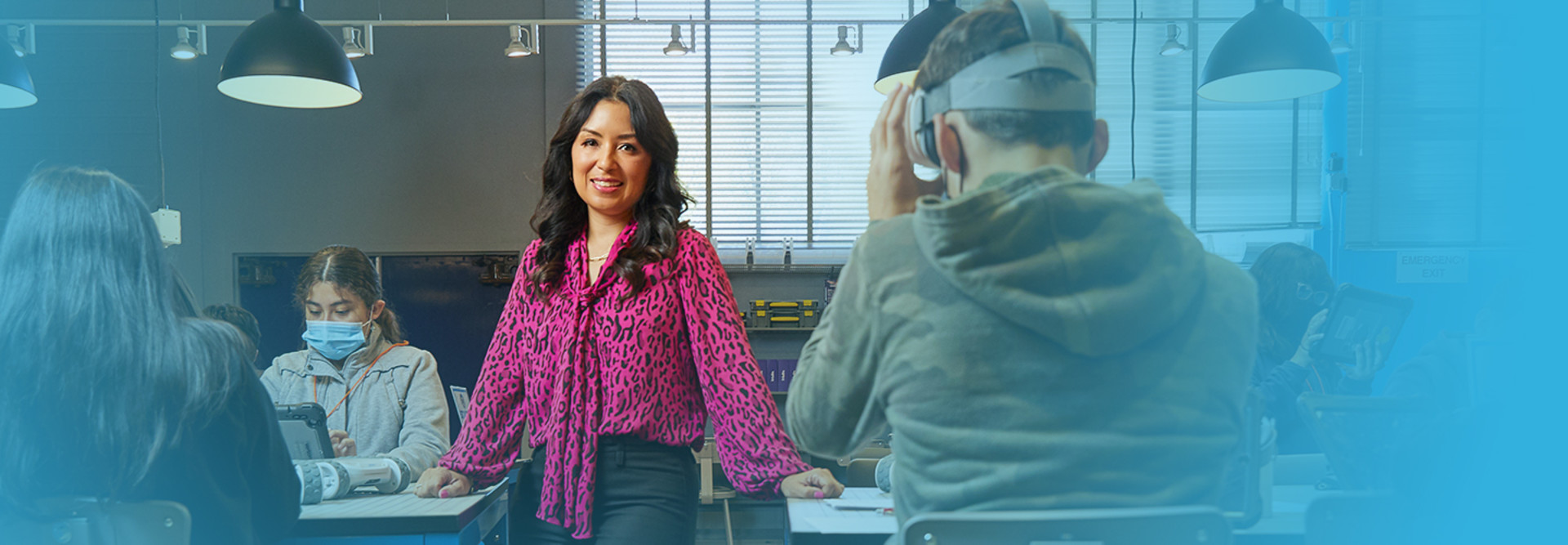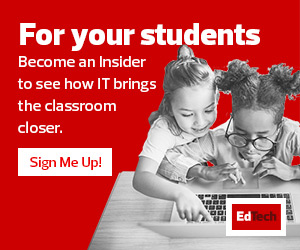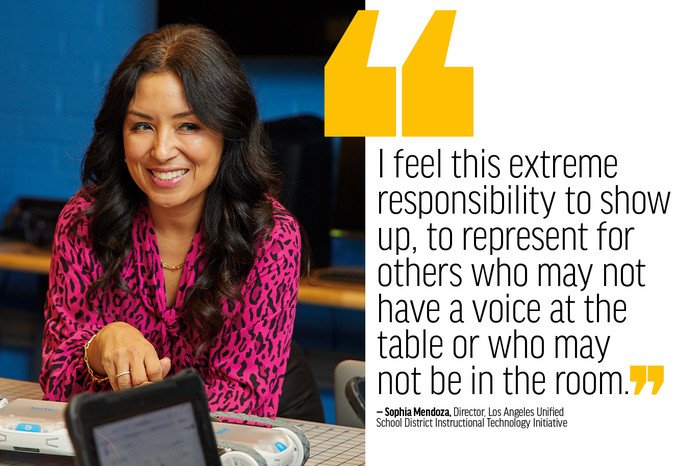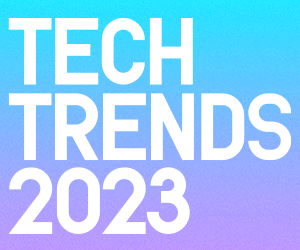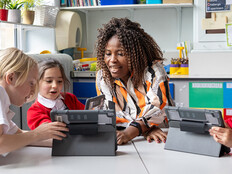I decided I wanted to make an impact in my community, that is why I became a teacher at the neighborhood elementary school where I grew up. After becoming a teacher, I was asked to lead a very innovative reading program in the late 1990s that focused on meeting students where they were in literacy. This was a precursor to personalized learning, but without the technology component.
I then became an assistant principal at a school that had a very high population of students with disabilities. My role there at the time was to advocate on behalf of the students with disabilities, as well as ensure that the teachers had the necessary professional training. That was a really a monumental point in my career, because I learned so much about advocating for our students with disabilities and their families.
EDTECH: What would you say is your core approach to bringing together technology and pedagogy?
MENDOZA: I lead with instruction. The instruction is my endgame, and everything in between is a means to an end, including technology.
Along the way, I use digital citizenship competencies, and at the foundation are the ISTE standards for students, educators, educational leaders and coaches, threaded with computer science. It all intersects.
RELATED: K–12 districts use technology as guardrails for digital citizenship.
EDTECH: What would you say are some challenges that your department is focused on addressing today?
MENDOZA: Right now, we are ensuring that our educators and educational leaders have the most rigorous and relevant professional learning that will impact student achievement for college, career and beyond. We are also continuing to ensure that all of our students have connectivity at home. That’s a big piece because, as we know, learning happens anytime, anyplace.
EDTECH: Why do you believe that technology is an essential part of the educational offerings at LA Unified?
MENDOZA: Technology is everywhere, and technology is for everyone. It has become essential to how we exist in our modern society, and we have a responsibility to ensure that all students develop competencies in using technology to navigate the world.
We need to consider measures to empower our youth, our families and our educators when they are in these online spaces.
EDTECH: You spoke about opportunities with artificial intelligence a few years ago. Today, the topic seems more popular than ever. How are you helping teachers integrate AI into the classroom?
MENDOZA: Just before Covid-19, we came together with several community partners to create a professional learning series to help educators have a better awareness of artificial intelligence.
We really drove home that AI is not anything that we need to shelter our students from. What’s been key is that our teachers feel empowered to have some of these conversations with their colleagues, with their students and, most important, with the families that they support.
MORE ON AI: What are the pros and cons of ChatGPT in education?
EDTECH: LA Unified seems to be leading the way by embedding computer science education throughout the entire K–12 educational experience. Tell us why this is important.
MENDOZA: When I first stepped into this role, I dug into the demographics of students taking AP computer science. What I discovered was that predominantly white and Asian boys were participating in the course. Although 73 percent of our students were Latino and 8 percent were African American, these students were not represented. Girls were not represented in these courses in computer science either.
For us computer science education is about equity, access and opportunity. So we started working closely with a small group of educators and principals, then made recommendations to the school board. They then passed a resolution to ensure that by 2025, all students would have access to computer science education, starting with our youngest learners.



